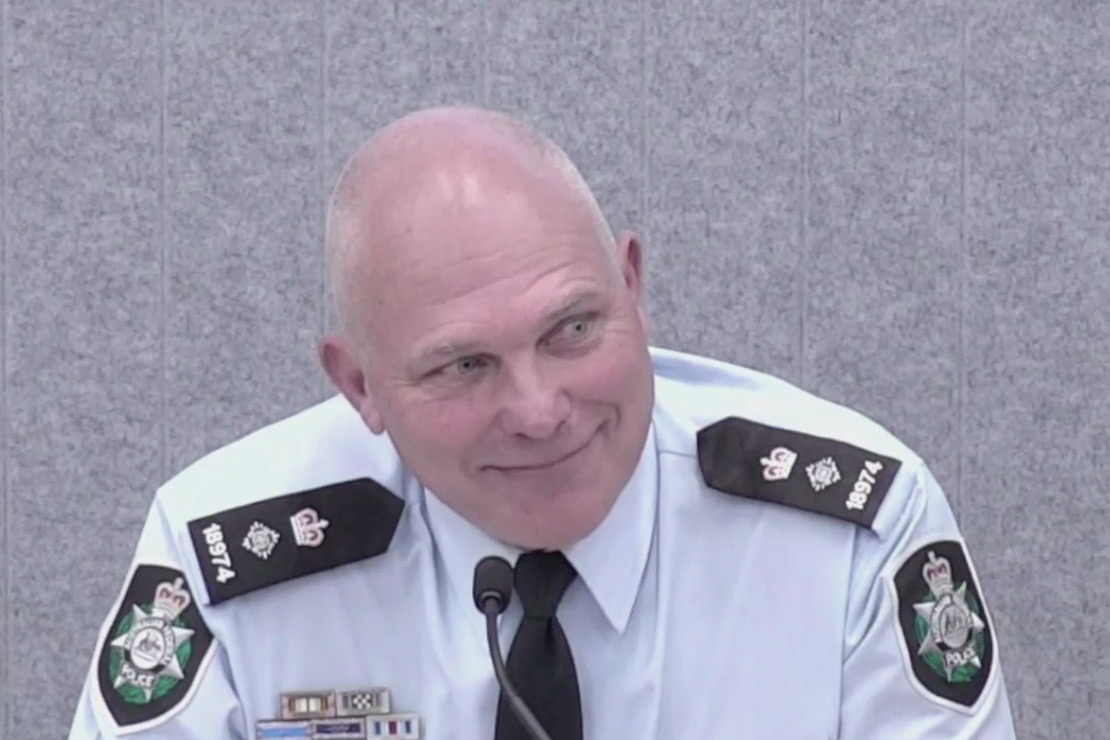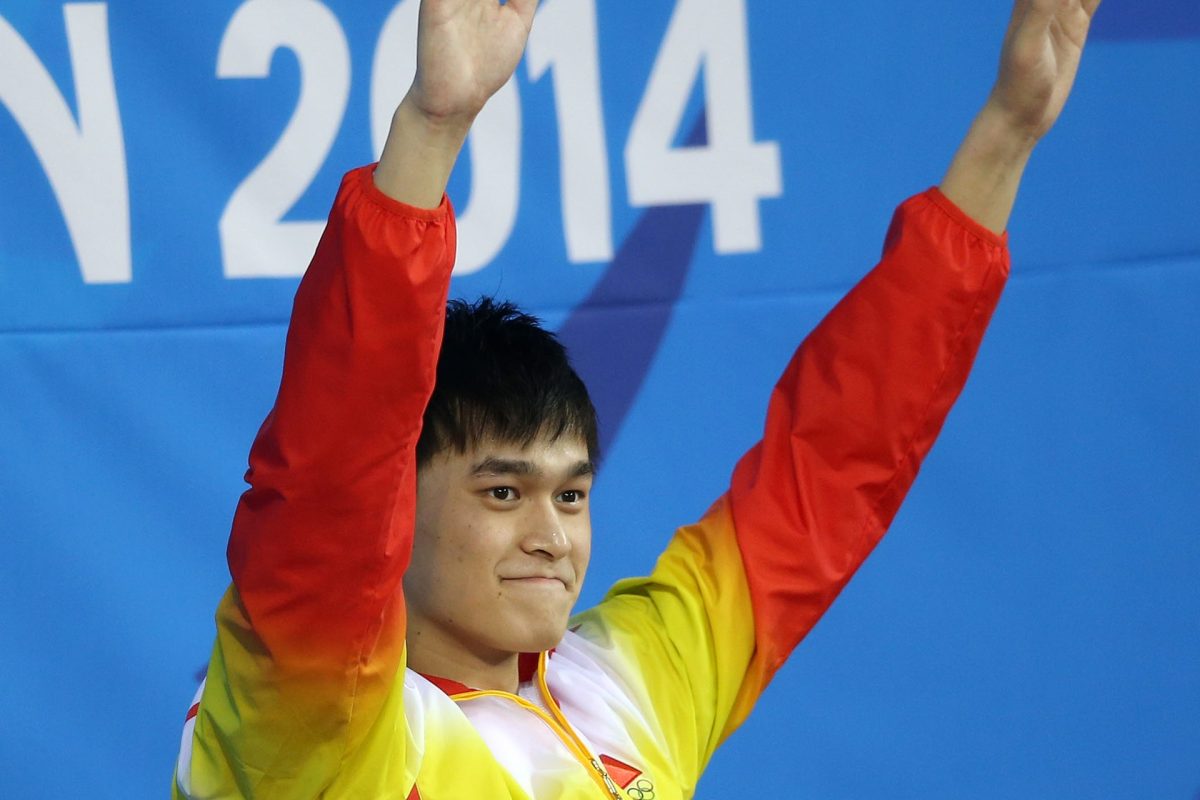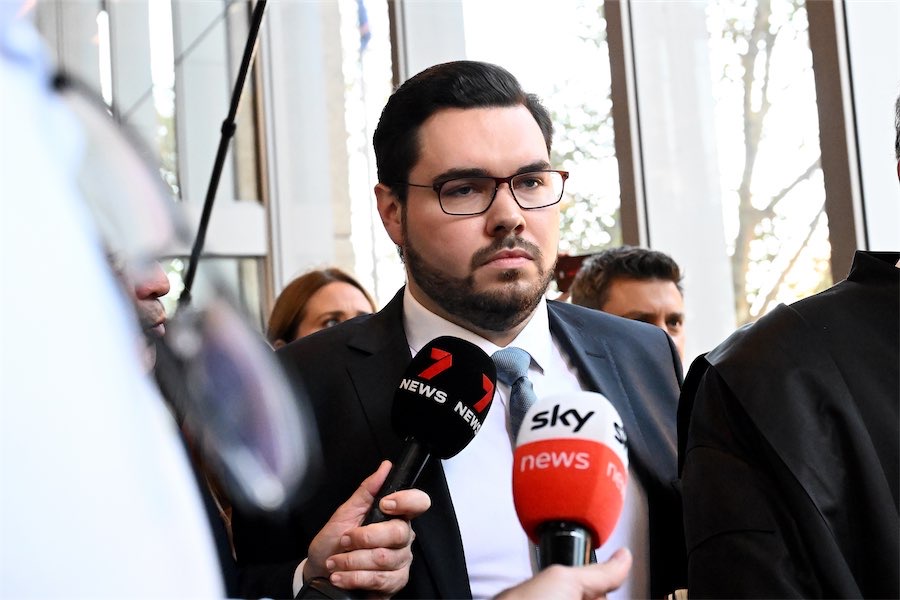
“CityNews” legal columnist and former barrister HUGH SELBY is commentating regularly on the Sofronoff Inquiry’s public hearings, focusing upon the advocacy and witness performances.
The Board of Inquiry, led by Commissioner Walter Sofronoff KC, a former president of the Queensland Court of Appeal, was established by the ACT government in December to examine how police, prosecutors and a victim support service handled allegations made by Brittany Higgins against her former colleague Bruce Lehrmann.
COMMISSIONER Walter Sofronoff KC opened Monday’s late start by thanking witnesses for their co-operation and the need to ensure it continued for the Inquiry to succeed.
He asked why a photo of DPP Mr Drumgold SC – at home, invading his privacy – was published last week in “The Australian” newspaper. Because such an invasive photo – with its caption – will discourage other witnesses, he has written to the editor of that paper seeking an explanation.
He was then critical of advocate Mark Tedeschi KC’s characterisation of police during his cross-examination of defence advocate Steven Whybrow SC.
Mr Tedeschi responded and the commissioner accepted that there was no intent to be inflammatory or to attract media attention.
The advocate for Victims of Crime Commissioner Heidi Yates was concerned that Mr Whybrow was quoted in “The Australian” over the weekend. The commissioner said that “almost all of it” related to general propositions, but some of it was about Ms Yates who is yet to give evidence.

Introducing the detective superintendent
“Mr Moller agreed that he would not have charged Mr Lehrmann. He points out that in his short report to his commander he highlighted concerns that he had, as did Mr Boorman.”
JOSHUA Jones, Monday’s counsel assisting (CA), then opened by reference to the inquiry’s terms of reference’s coverage of policing issues. He briefly summarised the likely evidence topics.
Det-Supt Scott Moller then gave evidence all day. He had his notes and lengthy statement to the inquiry with him. His is a management role over several ACT policing areas. Det-Insp Marcus Boorman (from whom the inquiry will hear later) had a more direct management role over investigations conducted by detective sergeants and their teams.
Mr Moller has had a long career in policing, both interstate and in the AFP. He came in uniform. He immediately settled into the role of witness, speaking at a good pace, with a nice affect, and a body language that bespoke sincerity.
He maintained that attractive demeanour and gave straight, informative answers, even when being put under pressure in the afternoon by the CA.
He was helped by the easy-to-follow questions from the CA, sometimes expanded by extra questions from the commissioner. The CA used a mix of open “please explain” questions and more forceful closed questions as he ranged over many topics.
A victim-centric approach to sexual assault allegation
Mr Moller was taken to various aspects of the police “victim centric” approach.
While discussing the range of complainants, he spoke of complainants who come to police, want their complaint recorded, but do not want any investigation. As he indicated: “We will support them (any complainants) in their decisions.” However, there are some situations (a serial rapist would be an example) where there must be police inquiries, despite the complainant’s personal concerns.
He pointed out that taking and storing possible evidence is often done as early as possible, because a complainant may go away and then come back, ready to proceed.
Taken to the investigation of alleged sexual assaults, Mr Moller said that police viewing the counselling records of a complainant is important to their inquiries.
He was aware of the disclosure prohibition, but saw that as relating to the later criminal proceedings, not the earlier investigations. That interpretation may be right. We must all wait and see.
He says it was a mistake by police to give the ODPP the counselling records. Nobody turned their mind to that question. What went to the ODPP was a partial brief because police were seeking advice. It preceded the usual internal checks on the final brief to go to both the ODPP and the defence.
The issue of the summons
Taken to the service of the summons (which tells a defendant of a first court date and the charge) he pointed out that it could take up to six weeks to go through the entire process, though there is a way to do it in about a week.
There was a lot of pressure to get Mr Lehrmann before the court. Hence it was decided that the usual, internal adjudication was unnecessary as the ODPP had looked at the partial brief.
Mr Moller had reservations about this approach. He wanted to follow the usual procedures, but a command decision was taken to follow another path.
Even at this stage the investigators did not believe there was enough evidence. Mr Moller swore the summons because he did not want to put pressure on his investigators to do so. Further, based on the ODPP advice, he accepted that the statutory test for charging was met. That test is a lower bar than the later ODPP decision as to “reasonable prospects of a conviction”.
The test to apply before charging was raised again late in the day and is mentioned near the close of this article.
An appointment was made with Ms Higgins and Ms Yates before the charging for Mr Moller to tell her what was going to happen. That was cancelled on superior’s instructions because of fears about her going to the media. Instead, she was advised very soon after the summons was delivered to Mr Lehrmann’s solicitor.
The summons was supposed to be delivered with the brief to Mr Lehrmann’s solicitor in Sydney. By mistake the brief was not delivered. Because it was during covid, a Sydney based police officer then downloaded the material and put it on a USB which was delivered to the Sydney solicitor.
That material included material that should not have been disclosed, such as the counselling records and the videos of Ms Higgins’ interviews with police.
The second recorded interview with Ms Higgins
The rationale for the second recorded interview with Ms Higgins was to put inconsistencies to her for clarification. As it happened one new line of inquiry opened up.
Mr Moller takes the view that a complete investigation requires looking at inconsistencies with a complainant because it might throw up a line of inquiry that should be followed.
From early on Mr Moller had concerns about Ms Higgins’ vulnerability. The second interview was stressful, but this illustrates the tension between getting the evidence and complainant vulnerability. Striving to achieve a balance is difficult. It’s a dilemma that has not been resolved.
He explained how, at Ms Higgins’ repeated request, during this second interview she was shown a video of her and the defendant entering Parliament House.
Normally, he said, such a video would not be shown to a complainant because of its possible effect upon any later evidence by her at trial as to her sobriety on the night of the alleged offence. The tension was between “being supportive” and proper investigation technique.
He supported better working together by the Victims of Crime Commissioner and police to ensure the best approach and the best outcome.
To charge or not to charge
Mr Moller expressed his concerns about DPP Shane Drumgold’s attitude towards the police. This caused him and his investigators to “second guess themselves” because they felt that the DPP would later criticise them. That proved to be so.
Mr Moller agreed that he would not have charged Mr Lehrmann. He points out that in his short report to his commander (his line superior) he highlighted concerns that he had, as did Mr Boorman. He also advised his commander to look at the brief and the evidence matrix for any more detail. In his short brief he did not mention possible problems in Mr Lehrmann’s account.
David Edwardson KC, advocate for defence advocate Steven Whybrow SC, pointed out that there was no reason for Mr Moller to look at Mr Lehrmann’s account (and its plausibility or not), as that did not affect the strength of the prosecution case. (Readers will recall that a defence has nothing to prove, that an accused does not need to, and often does not, give evidence.)
There were then questions about an internal police evaluation by the “Red Team” of the investigation. The focus is, “Is there anything that we haven’t done that we should do?”. This is done at arms-length. It was Mr Moller’s first experience of such an approach. The result was a “glowing” report.
Turning to the ACT police officers’ approach to charging – an issue about which Mr Drumgold was critical – Mr Moller says that ACT police take a consistent, conservative approach to the threshold to charge. This reflects experience in ACT courts. The test is, says Mr Moller, higher than in other states. There are “inconsistencies” in how police officers articulate that test, not in its implementation.
It is definitely not, said Mr Moller in response to the CA’s final question, the police function to side with the prosecution. They are available to both sides.
What a splendid, encouraging end to Supt Moller’s day in the box. There will be some cross-examination of him on Tuesday.
“CityNews” legal commentator and former barrister Hugh Selby is writing running commentary on the Sofronoff Inquiry’s public hearings, focusing upon the advocacy and witness performances. The “CityNews” coverage of the inquiry, including his daily reviews, are here.
Hugh Selby is the “CityNews” legal affairs commentator. His free podcasts on “Witness Essentials” and “Advocacy in court: preparation and performance” can be heard on the best known podcast sites.
Who can be trusted?
In a world of spin and confusion, there’s never been a more important time to support independent journalism in Canberra.
If you trust our work online and want to enforce the power of independent voices, I invite you to make a small contribution.
Every dollar of support is invested back into our journalism to help keep citynews.com.au strong and free.
Thank you,
Ian Meikle, editor





Leave a Reply